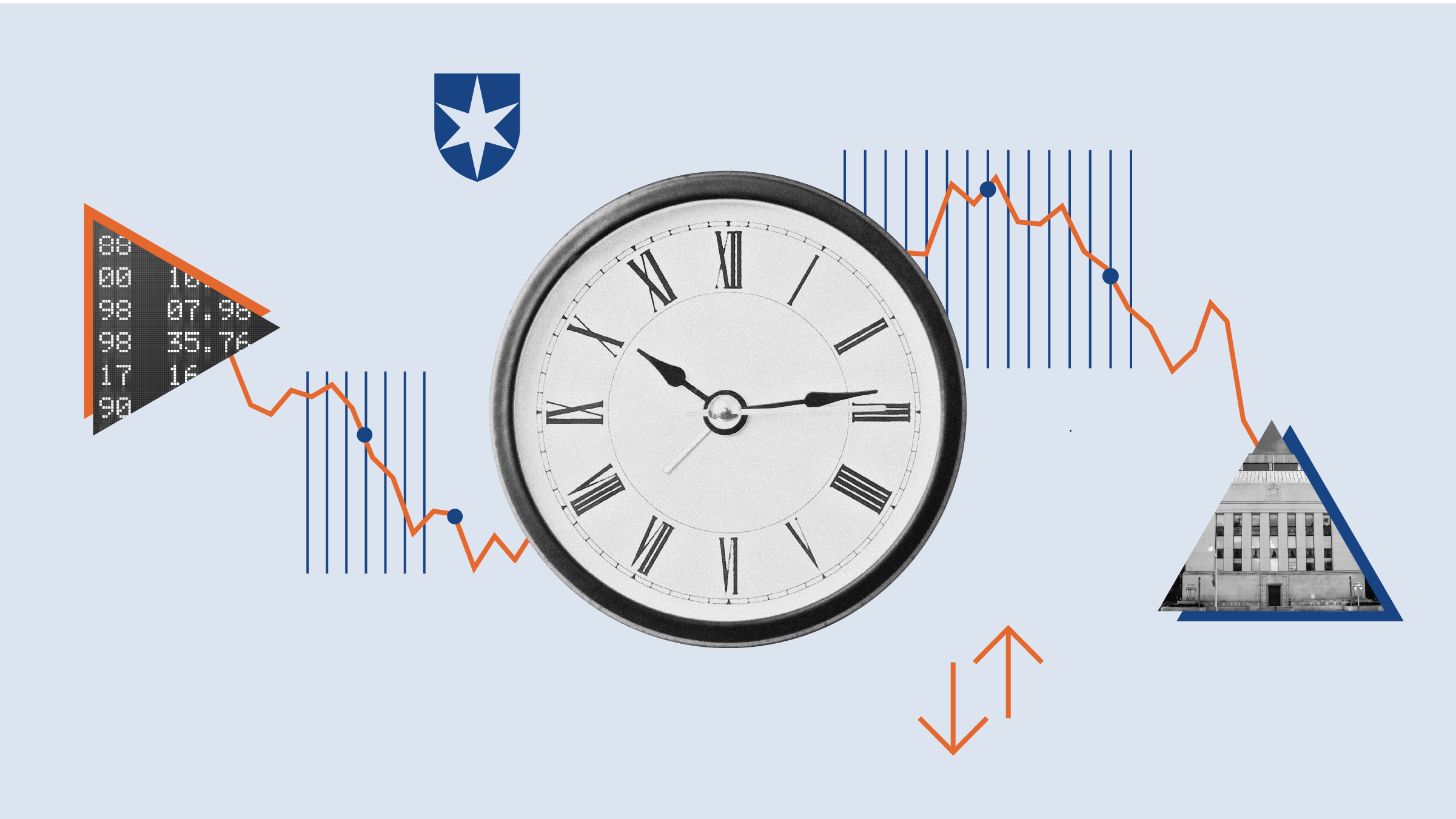Darrell Anderson, a principal and director at Calgary-based Mawer Investment Management Ltd., is finding opportunities in the economically sensitive area of the U.S. equity market, particularly among industrial stocks.
Anderson, who is responsible forMawer U.S. Equity  and the firm's U.S. equity segregated portfolios, notes that he is balancing his economically sensitive exposure with holdings in more defensive sectors, such as health care.
and the firm's U.S. equity segregated portfolios, notes that he is balancing his economically sensitive exposure with holdings in more defensive sectors, such as health care.
"There is a need to be cautious. The U.S. economy has still to work through some key issues and is unlikely to produce robust growth in the near-term," he says. In all, Anderson is responsible for $425 million at Mawer, of which $155 million is in Mawer U.S. Equity. This is an all-cap portfolio with 31 names.
"We, at Mawer, take are long-term view when investing in a company," Anderson says. The focus in his portfolios is on companies that have a significant market share plus management that is committed to "consistently creating wealth for shareholders."
A prime example of this, he says, and one of his top holdings in Mawer U.S. Equity for some time now, is International Business Machines Corp. ( IBM/NYSE). That company, says Anderson, "has been transforming itself into a software and consulting specialist, thereby reducing its reliance on lower-margin computer hardware."
 |
|
| Darrell Anderson | |
 |
|
 |
|
 |
It currently has a large order backlog on the services side of its business, he adds, despite weakness in some areas of the economy. IBM is an excellent free cash flow generator, he says, and its return on equity over the past five years has averaged 36%. "A high return on shareholders' equity is good evidence of wealth creation."
In evaluating a company, Anderson uses discounted cash flow analysis to determine the intrinsic value of the company. His discipline, he says, is to purchase stocks trading at a discount to his estimated intrinsic value.
Opportunities arose earlier this year, he says, when some U.S. companies "which I have admired and patiently monitored for a long time, moved into my valuation range, as a result of the stock market correction in 2008/2009."
There have also been opportunities in the U.S. industrial sector "and I have been adding to my holdings here," he says. Mawer U.S. Equity currently has an overweight position in industrials. "Investors have been overly negative about many industrial companies," Anderson says.
Watch a video interview with Darrell Anderson
"We are hearing from a number of these companies that their orders are beginning to stabilize and that they consider that the bulk of the bad news is behind them." His analysis shows, he says, "that there is value to be had in these stocks."
Key industrial sector holdings that Anderson has been adding to include major diversified industrial company, Emerson Electric Co. ( EMR/NYSE), which has a market capitalization of US$27 billion, as well as smaller-cap companies such as Ametek Inc. ( AME/NYSE), which has a market capitalization of US$3.5-billion, and Graco Inc. ( GGG/NYSE), with a market cap of US$1.5-billion.
Of Ametek, Anderson says: "This specialty manufacturer of electronic instruments and electromechanical devices with a global reach is an example of a niche company that has a good track record of consistently creating wealth for shareholders."
Graco, Anderson notes, is another niche player. The company makes a wide range of fluid handling equipment with applications such as spray finishing and paint circulation, lubrication, sealant and adhesives for the contractor industry worldwide. It is also a "great example of a wealth creator."
Two long-admired companies that he added to the portfolio earlier this year because, he says, "the stocks had fallen to the point where they offered compelling value" are T. Rowe Price Group Inc. ( TROW/NASDAQ) and Paychex Inc. ( PAYX/NASDAQ).
Investment manager T. Rowe Price, which has a market capitalization of US$12 billion, currently constitutes 2.5% of the portfolio. The company has assets under management of some US$300 billion and a "solid track record of good performance in most of the portfolios it manages -- both mutual funds and separately managed accounts." It is a good wealth creator, he says. The company's average return on equity over the past five years is 23%.
T. Rowe Price has a "major presence in the U.S. retirement business, for example managing retirement portfolios offered by companies to their employees, and there tends to be a long-term relationship between money manager and client," Anderson says. He also applauds T. Rowe Price's culture of team management and its emphasis on the long-term in its equity research.
Anderson bought the stock in March in the low US$20s, when the market was "overly pessimistic" about flows of money into mutual funds. The stock has risen sharply since, and it is "not the bargain it was then, but it is still trading at fair value, i.e., in the middle of our range of its estimated intrinsic value."
Paychex, which has a market capitalization of US$9.6 billion, is an "excellent wealth creator, with an average return on equity over the past five years of 33%." This company processes payroll, handles employee benefits, and offers related human resource services for a diversified customer base. It has more than 561,000 clients. "It is a strong player in this niche."
The stock, he says, "still trades at a significant discount to his estimated fair value and also carries an attractive dividend yield."
A holding that Anderson has sold recently is discount retailer TJX Cos. Inc. ( TJX/NYSE). He says there are better opportunities elsewhere, adding that "I was concerned that the market for this type of retailer of apparel and household products at a discount had reached saturation for the medium to long-term."















